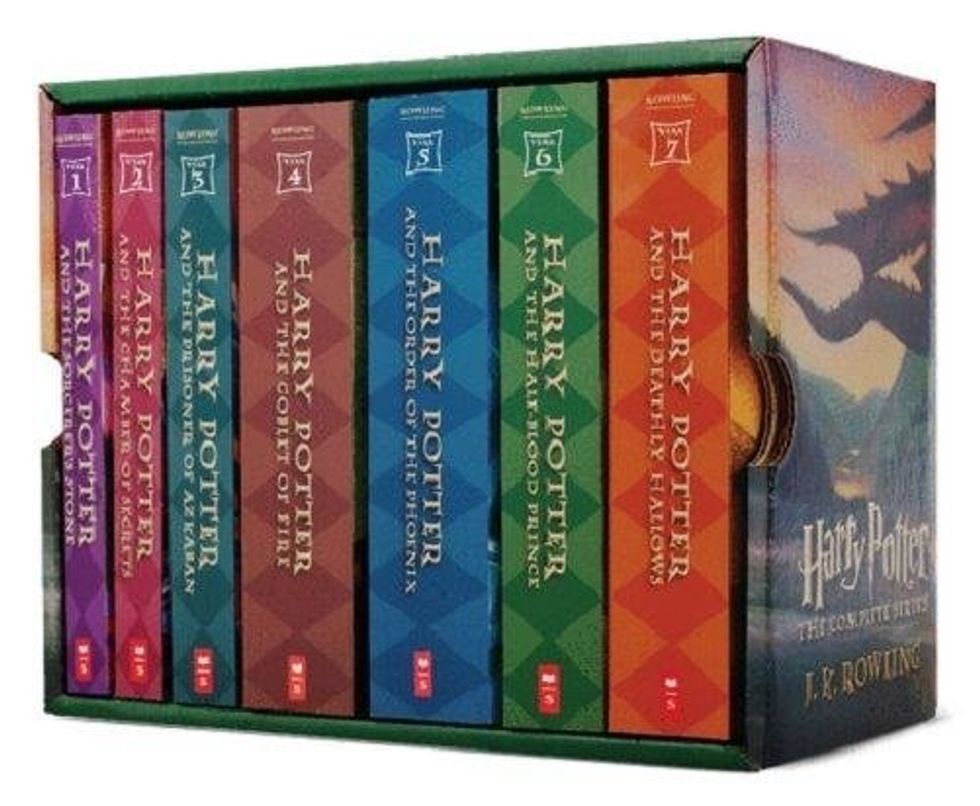We've all done it. Everyone, either consciously or subconsciously, has ranked their favorite "Harry Potter" books in order of best to worst. And whether these rankings have depended on one's connections to the books, their enjoyment of plot arcs, or even reactions to the deaths of their favorite characters, our rankings may all be different. However, if yours is different than mine here—you're simply wrong. Here are easily the best (and worst) "Harry Potter" books—in the right order!
1. "Harry Potter and the Goblet of Fire"
Easily the best of the Harry Potter collection, "The Goblet of Fire" has it all: intricate details of Voldemort's past, an exciting Triwizard Tournament, and the beginnings of Harry's loss of innocence. Coupled with dragons, teenage heartbreak, and the return of Voldemort, this book is easily the most exciting of the series.
2. "Harry Potter and the Chamber of Secrets"
While "The Chamber of Secrets" isn't widely popular among fans, I believe it should be ranked No. 2 because of its incredible story line: the Chamber of Secrets, champion of Salazar Slytherin, had been opened, implying that Slytherin's true heir had returned to Hogwarts. A true testing of young Harry's courage, its optimistic overtones make it a really fun read for the most nostalgic of us.
3. "Harry Potter and the Prisoner of Azkaban"
"The Prisoner of Azkaban" is a crowd favorite, owing to its depth—this book launches the darker side of the Harry Potter series, but also provides Harry with more knowledge about his parents' past. This knowledge leads him to discovering his godfather, a man who resembles a parent to him. Such a plot saves Harry from feeling so orphaned (at least temporarily), a vital sentiment for any young reader.
4. "Harry Potter and the Deathly Hallows"
Somehow both often boring and hugely exciting, "The Deathly Hallows" serves as the lengthy, dramatic conclusion to the series. While the themes of friendship, courage, and acceptance are all heightened up until the book's thrilling conclusion, it does get melancholy, making it often a harder read than some of the earlier installments. However, its ability to capture the impossibility of growing up and accepting the faults of the ones you admire makes it a stand-out book.
5. "Harry Potter and the Half-Blood Prince"
While the movie adaptation of "The Half-Blood Prince" was my favorite of the films, this book was just not as great as some of the others (although of course it's still brilliant). What made it appeal to me was its domestic approach—the war against Voldemort was building, but the storyline focused primarily on the three teenagers (Harry, Ron, and Hermione) and their quest to find love and acceptance. A little softer than some of the other books at times, this fictional novel also presented with dark portrayals of Voldemort's past as Harry begins his quest to destroy him. Again, none of these books were ever bad—but this simply was not top four.
6. "Harry Potter and the Sorcerer's Stone"
"The Sorcerer's Stone," the book that started it all, was simply not up to the caliber of its successors. While J.K. Rowling's plot was wonderful, it was a touch soft at times (of course, it is written about 11-year-olds) and her writing style was not as gorgeous as it later became. However, the final chapters of this novel (involving the trapdoor, Fluffy, and Harry's first face-to-face encounter with Voldemort) set up the stage for the rest of the series nicely.
7. "Harry Potter and the Order of the Phoenix"
Finally, "The Order of the Phoenix" had many readers scratching their heads. Both super long and a little confusing, I found this book at times a tad boring to read. The wealth of information was brilliant—especially Snape's side stories—but the overall plot was just duller than the others. Of course, every Harry Potter book has its merits, but this was simply the worst of all seven.
Note: As an Amazon Associate, Odyssey may earn a portion of qualifying sales.




















